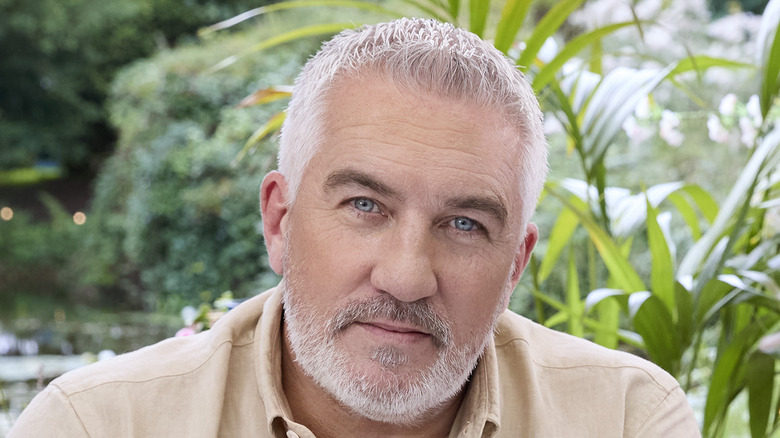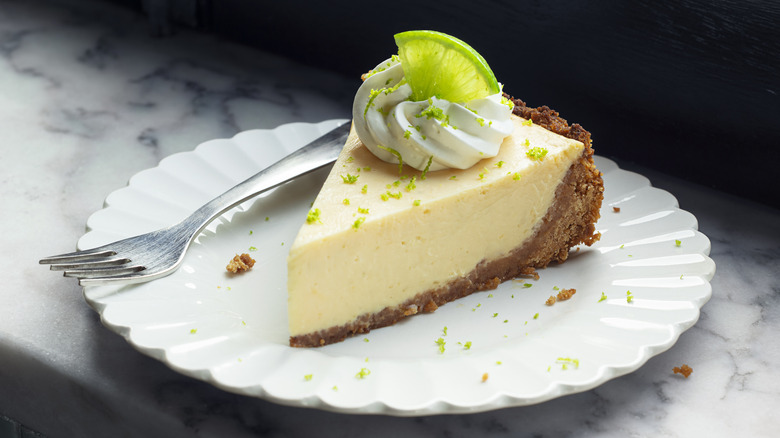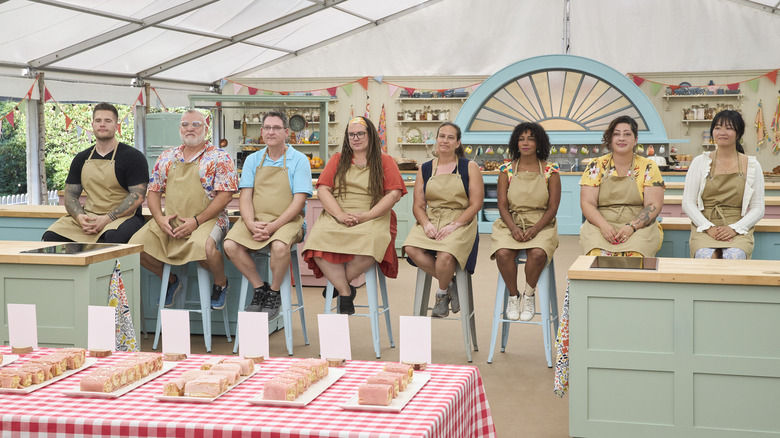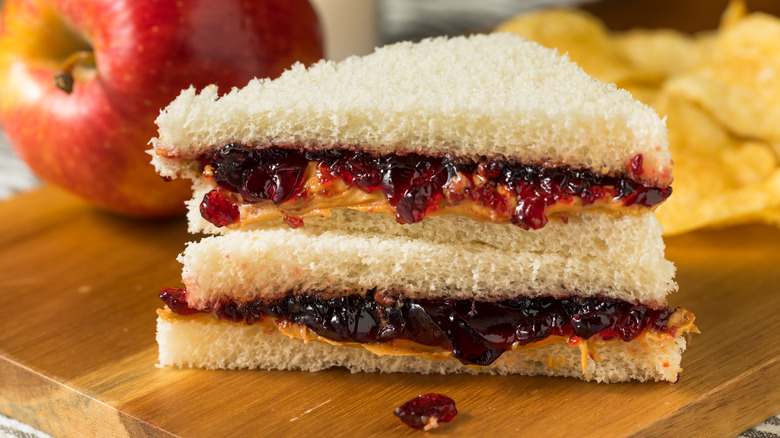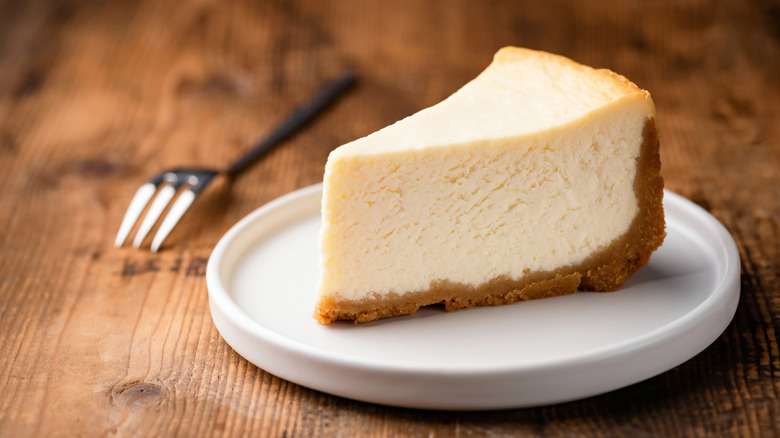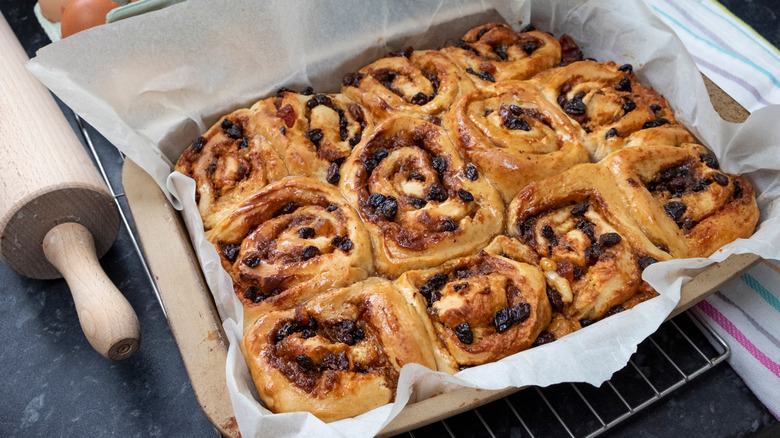Paul Hollywood Tells Us His Favorite American Baked Goods (And The One He Hates) - Exclusive Interview
If you're anything like us, you're probably obsessed with "The Great British Bake Off."
We checked in with Paul Hollywood to talk about the differences between American and British bakers, his favorite American treats, and what he's planning to bake for Princess Anne the next time he sees her. Yes, Hollywood shared some must-know baking tips, but more importantly, he let us in on the American treats he adores — and the bake that would almost guarantee a competitor a coveted Hollywood Handshake.
Want to impress Paul? Make a key lime pie
I have had a chance to take a peek at the next season, which starts with Cake Week. You explain in the intro that you chose that as the first theme because cake making is a global baking basic. Do you have some tips for home bakers who are hoping to make a cake that would impress you?
No. Because then they'll all do it in "Bake Off" and I'll be giving that handshake to everyone. I do think that it's all about passion, and that comes through in baking. If you enjoy what you do, that comes through in your baking.
So for me, I love citrus flavors. [If] someone makes me a key lime pie, they're going to get a handshake. It's almost a certainty that will happen. Or those flavors involved in something. But I think it comes down to passion. If you enjoy what you're doing, it comes out in the bake, for sure.
I like [the competitors] to come with what they want, rather than what I want. It's very difficult to ... disassociate yourself from your taste buds sometimes, because someone comes up with a couple of flavors that you don't like — and to be honest, it's not many for me — but the bake is excellent. I can't criticize them on their flavors because their bake is good, or if the cake looks amazing. So I take that to one side and go, "Well, actually the flavors that you've chosen are there and they are quite strong, so that works. And the bake is good." I've always been fair from that point of view. But it depends what sort of cake you're going to make.
Overbaking a cake, or overbaking a loaf, or overbaking a muffin is a bad thing. Because you're drawing moisture out, and it becomes like sawdust in the bottom of it. It's like the bottom of a bird cage. It's not nice. You want that moisture, you want that softness on the palate. And then things have got to be set. If you're doing jellies or creams or custards, you want it to be mildly set, it's got to be set. So, it's about precision. With precision comes good baking, and then everything else is up to the bakers really.
The trick to setting a technical challenge
In the technical challenges, you often push bakers to create something they've never seen before. How did you go about choosing technical challenge recipes for American bakers? Did you find that they have a different cultural reference point than the British bakers have?
No, they haven't. No, they've got exactly the same. You've got to look at the States in a strange way, because actually it's a strange place. ... When you dig around in history, you'll find there's a lot of similarities. There will be fruit in cakes. There'll be pancakes, there'll be... actually, we're not too dissimilar at all.
What changes is, and this is what got me about America, when I've been eating in America and traveling across the States, is the portions side. OMG, I nearly fell off my chair once when I was in Georgia and they gave me an apple pie ... literally it was about 15 inches across, and I thought it was going to feed all the family, including the owners of the restaurant. But oh no, that was just for me. I couldn't believe it. Your starters are like buffets to us.
[W]hen it comes to technical challenges, we can be obscure and say, "Make me a fougasse." Or such and such from France. ... [Y]ou'll know what a fougasse is, and you'll know what a focaccia is, and you'll know what a ciabatta is, or you'll know what this is. So, we try to pick things that people know loosely, or [have seen] but have not necessarily made. And this is where it becomes tricky because in the technical [we'll say] you've got 50 minutes, and [have taken] the recipe away, left all the ingredients and scales. But a true technical challenge should certainly be challenging.
I know there are a few challenges that are things that Americans might not have seen or eaten before, even if they know the techniques.
Yeah. But they learned something, which is good.
Paul's take on classic American snack foods
You touched on the broad range of influences and the diversity within the American culinary culture. Is it more challenging to judge bakers who have this wider influence?
Because I've been in the industry quite a while ... [there are] not many times someone will come up with something that surprises me or ... something I don't particularly like. Most of the flavors are great.
Although I was interested when I first met peanut butter and jelly. I'd heard about it in movies for years growing up, but never actually tried it. I'd had peanut butter, and I'd had jam, or jelly, but I'd never had it together and someone on the show made it for me and I said, "I'll try this." And actually it was all right. I was always like, "What are you crazy? That doesn't go together." But obviously it's one of the most classic combinations, peanut butter and jelly, everybody talks about it and looks at me and thinks I am the odd one, which I probably was, because I'd never had it before, because I didn't grow up with it.
Have you had a chance to taste some other iconic American foods? What did you think?
I was trying things like the Twinkies and all these little snack treats when I was over in New York last year for a little video we did, and they were giving us all the snacks that they eat over in the States. Some of them are really bad and some of them are really good. But there's a lot of really bad ones. Mind you, we could probably think of the same over here as well.
Was there one particular snack that stood out?
Twinkies. Disgusting.
The American baked goods Paul Hollywood loves
What was something that you really liked?
Donuts. Big fan of glazed donuts.
What are some other traditional American baked goods you love?
Well, key lime pie, for one. Number two, donuts. [I] love donuts and sugar — you know the iced donuts, that you dip in the icing? Oh, dear. I went to a donut shop in New York ... I can't remember what it was called. And there were about 300 different types of donuts and I had to try quite a lot of them, and they were amazing.
New York cheesecake. Amazing. I went to Junior's in New York as well, and I worked with the boss over there. I made a brownie [batter], and he made his basic New York vanilla cheesecake, and we blended it together and made a marble effect. It was unbelievable. And I sat there and had a big wedge of it with loads of cream on it, and it was just delicious.
There are some naughty, naughty bakes in America that just you feel yourself ballooning up just looking at them.
How to make Chelsea buns fit for a princess
One more question before we wrap up. Congratulations on receiving your MBE (Member of the Order of the British Empire)! You commented that you had promised Princess Anne some Chelsea buns. What are your secrets to making Chelsea buns worthy of a princess?
Well, I'll certainly know very soon because I'm going to go and see her soon with them. I did promise I'd make Chelsea buns for her. And I'm a man of my word.
[I use] lots of fruit. Some people like mixed spice, [but] I like cinnamon, a bit of sugar. And then you bake them and then [glaze them with] apricot jam when they come out of the oven. And then what I do is make a lemon icing, and then just brush that on the top and leave that to set, because the lemon with the apricot, with the fruit, it's just delicious.
I'm sure she will love them. Thank you so much for your time!
Season two of "The Great American Baking Show" premiers on Friday, May 24th exclusively on The Roku Channel.
This interview has been edited for clarity.
